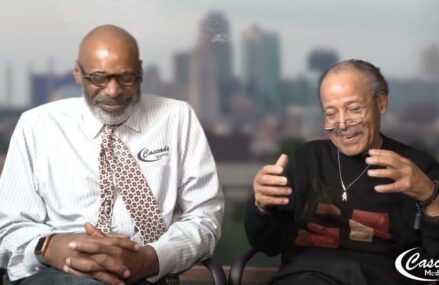Paraguay’s Colorado Party’s Presidential candidate Horacio Cartes gestures before casts his vote during general elections in Asuncion, Paraguay, Sunday, April 21, 2013. The elections are an important milestone in Paraguay’s attempt to regain the international acceptance it lost when neighboring nations objected to the fast-track removal of President Fernando Lugo. (AP Photo/Jorge Saenz)
ASUNCION, Paraguay (AP) — Paraguayans voted Sunday in elections they hope will end the country’s isolation from regional groups that challenged last year’s impeachment of President Fernando Lugo as a threat to their democracies.
Most pre-election polls gave the lead to the Colorado Party’s Horacio Cartes, a tobacco magnate making his first run for public office. Cartes is well-known in Paraguay as president of Libertad, the club that won last year’s national soccer championship.
The initial count was to be announced by Paraguay’s Supreme Electoral Court on Sunday night, and Cartes’ leading challenger, attorney Efrain Alegre of the Radical Liberals, expressed wariness about those numbers, saying he might not accept the results until they are certified in May.
“The system of rapid transmission of results of the electoral court is the same as the computations that we do; they’re extra-official instruments for anticipating results,” Alegre declared at a news conference. His delegate to the tribunal, Basilia Vazquez, further explained that they won’t recognize any result that doesn’t coincide with their party’s internal numbers, until the certified count is delivered by the court.
Nobel Peace Prize laureate Oscar Arias was leading an observer mission from the Organization of American States, and said Sunday that he had complete confidence in court because it has spent months observing and supporting the process. There were 515 observers from the OAS, the European Union, the Union South American Nations regional bloc known as UNASUR and the Union of Latin American Electoral Organizations.
International election observer Martin Sequeira said that voting was proceeding calmly and there was a high turnout, along with some unconfirmed reports of election fraud.
“One hour after voting started some incidents were registered, one of the most common methods (of election fraud), of ballots being pre-marked, according to what I’ve been told,” Sequeira said.
But Arias said the overall vote was proceeding normally, “despite some small incidents, which you see even in the most consolidated democracies.”
The Colorados were key to Alfredo Stroessner’s 35-year dictatorship and held the presidency for 61 years before Lugo, a leftist, sandal-wearing former bishop who was committed to land reform, joined up with the Radical Liberal party and won the office in 2008.
But Lugo lacked even a handful of supporters in congress and was stymied at every turn. His coalition with the Radical Liberals finally broke apart, joining with the Colorados to vote him out of office for “poor performance” last year. The impeachment process is well defined under the constitution, but Paraguay’s neighbors criticized the ouster of a popularly elected president as anti-democratic, and suspended the country’s membership in regional organizations such as UNASUR, the Mercosur trade bloc and the Latin American council of Catholic bishops known as CELAM.
Lugo’s vice president Federico Franco, who took over as caretaker president, said he expects Paraguay’s status to be swiftly normalized after the new head of state takes office on Aug. 15.
In addition to electing a president and vice-president to five-year terms, an estimated 3.5 million of Paraguay’s 6.2 million citizens were voting for 45 senators, 80 deputies, 17 governors and 18 delegates to the Mercosur parliament based in Uruguay. Millions more voters live outside Paraguay, but after a poorly funded registration process, fewer than 22,000 people were able to vote Sunday from outside the country, most of them in Argentina, Spain and the United States.
Trailing well behind the leaders was Anibal Carrillo of the leftist Guasu Front coalition led by Lugo, who is seeking to return to elective office as a senator.
A presidential candidate can be declared winner with a plurality, and there is no runoff.
Whoever wins must deal with endemic poverty in South America’s No. 3 producer of soy, corn and sunflower, an agrarian nation where about 1 percent of the population controls 77 percent of the arable land.
The U.N. estimates that more than half of Paraguayans live in poverty, while Paraguay’s census bureau puts the number at 39 percent. Both leading candidates have said they will try to change that.



